8 Feb 2018 | Global Journalist, Media Freedom, News and features, Russia
[vc_row][vc_column][vc_single_image image=”97735″ img_size=”full” add_caption=”yes” alignment=”center”][vc_column_text]This article is part of Index on Censorship partner Global Journalist’s Project Exile series, which has published interviews with exiled journalists from around the world.[/vc_column_text][vc_column_text]Kseniya Kirillova thought her stay in the U.S. would be only temporary.
When she left her hometown of Ekaterinburg, Russia in the spring of 2014 to move to Seattle with her husband, a Ukrainian software engineer, she had little experience in international affairs.
But all that changed as Russia began to openly back separatists in eastern Ukraine, and eventually invaded and annexed the Crimean Peninsula. Kirillova, who had previously worked for Novaya Gazeta, an independent Russian newspaper known for its investigations of corruption and criticism of the Kremlin, was taken aback. She had many friends in Ukraine, and was determined to do all she could to counter what she saw as Russian propaganda that was feeding the war effort.
She began writing about Russian propaganda for the website Novy Region. Often critical of President Vladimir Putin, the site had been founded by a friend, Russian journalist Alexander Shchetinin. Shchetinin had founded the news outlet in the 1990s but was forced to leave the company under pressure from the Russian government in 2014. He later relaunched the site in Ukraine.
Kirillova wasn’t unfamiliar with the difficulties reporters face in challenging the Russian government. At least 58 journalists have been killed in Russia since 1993, according to the Committee to Protect Journalists. That includes several Novaya Gazeta journalists who were killed or died in mysterious circumstances since 2000.
Living in the U.S., was safe. But in August 2016, Shchetinin, who had called Putin his “personal enemy,” was found dead of a gunshot wound to the head in his apartment in Kiev. A suicide note was found near Shchetinin’s body. Kirillova doesn’t believe Shchetinin killed himself, and Ukrainian authorities opened a murder investigation.
Soon after Shchetinin’s death, Kirillova found a pro-Russia site online listing the names of “anti-Russia extremists.” Her name was on the list. A return to Russia, already dangerous, now seemed potentially deadly.
Today Kirillova, 33, lives in Oakland, Calif. and is a contributor to the Russian service of U.S.-backed Radio Free Europe/Radio Liberty as well as the Ukrainian broadcaster TCH. She spoke with Global Journalist’s Jiwon Choi about the death of her collaborator and her efforts to counter propaganda in Russian media.
Global Journalist: How has the conflict between Russia and Ukraine affected you?
Kirillova: All my problems in Russia started because of my activity in America. Before I came here, I worked for several years…for Novaya Gazeta in the Urals branch. I lived in my hometown Ekaterinburg. I came to America accidentally. My husband, who is a citizen of Ukraine, he had a temporary work contract in the U.S. At the same time, the Russian and Ukrainian war began [in] March 2014.
It was a real shock for me. I considered it my duty to do something, so I began to analyze Russian propaganda, [their] fears and their mentality. The main importance for me was if this information could prevent new Russian provocations around the world.
GJ: How has journalism in Russia changed in recent years?
Kirillova: When I was in Russia, I sometimes covered some dangerous topics. Before the war, Russian [media] was defending Putin’s regime, but not as aggressively as it is now. It wasn’t so hard to talk about the government. We [reporters could write about] corruption and tell the truth about political, social and other spheres. Local government authorities were independent from the federal.
In 2010, the government changed in my region. They created a united power system and added a position like a city monitor, who was appointed by the federal government. It became impossible to cover any social problems, because any problems have something to do with government officials. It became impossible to publish any critical articles.
GJ: When did you first hear that the Russian government was targeting you and Alexander?
Kirillova: My close friend Alexander Shchetinin warned me that both of us would be charged with state treason. It was in in the spring of 2015. Russian authorities were accusing even ordinary people who didn’t have any access to state secrets, including simple housewives and saleswomen. The Russian Supreme Court recognized [Nova Region] as an extremist site only because it was in Ukraine and was opposed to Russian aggression. Thus, we officially became journalists of an “extremist” resource.
The Russian authorities instituted criminal proceedings against my friends, Russian dissidents from Ekaterinburg, even for innocent posts in social networks condemning the war. Thus, we already understood that a criminal case was waiting for us in Russia.
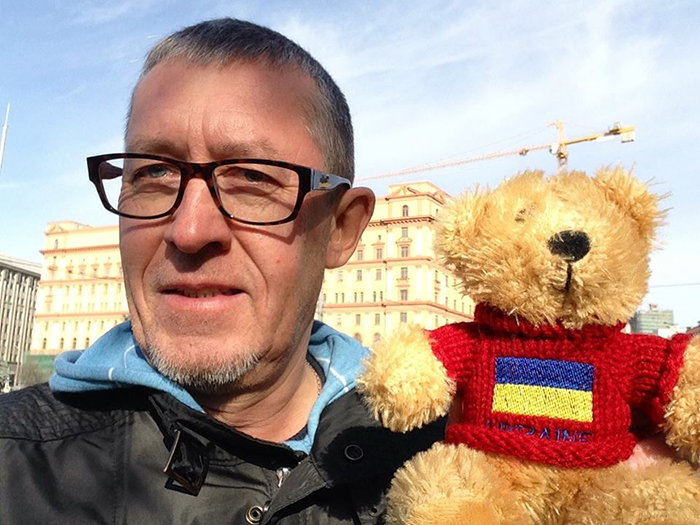
Russian journalist Alexander Shchetinin, pictured in front of the former headquarters of the KGB in Moscow with a stuffed bear.
GJ: How did you feel when you learned that Alexander was dead?
Kirillova: Alexander was someone who made the same choice as me – supporting Ukraine as a Russian journalist. Before his death, he lost most of his business, couldn’t visit his family and his adult children in Russia. He fought against Russian propaganda and agents of Russian influence in Ukraine.
I don’t believe that it was a suicide. He died a month after the murder of another Russian opposition journalist in Kiev, Pavel Sheremet. After the strange death of Alexander in Kiev, I found an article on an official Russian propaganda website which was later removed. It said that all Russian journalists who support Ukraine might be killed. My name was on the list.
GJ: What is the most difficult part of living in exile in the United States?
Kirillova: For a long time, I didn’t even have a work permit in the U.S. I was waiting for asylum [for] two years, even before the murder of Alexander. I was working for two years as a volunteer, without any payment. Now everything is fine, I have a work permit.
I lost everything because of my decision–I don’t mean the decision to come here, but the decision to start this work. But I never had illusions about this topic. [/vc_column_text][/vc_column][/vc_row][vc_row][vc_column width=”1/2″][vc_video link=”https://youtu.be/tOxGaGKy6fo”][/vc_column][vc_column width=”1/2″][vc_column_text]Index on Censorship partner Global Journalist is a website that features global press freedom and international news stories as well as a weekly radio program that airs on KBIA, mid-Missouri’s NPR affiliate, and partner stations in six other states. The website and radio show are produced jointly by professional staff and student journalists at the University of Missouri’s School of Journalism, the oldest school of journalism in the United States. [/vc_column_text][/vc_column][/vc_row][vc_row][vc_column][vc_custom_heading text=”Don’t lose your voice. Stay informed.” use_theme_fonts=”yes”][vc_separator color=”black”][vc_row_inner][vc_column_inner width=”1/2″][vc_column_text]Index on Censorship is a nonprofit that campaigns for and defends free expression worldwide. We publish work by censored writers and artists, promote debate, and monitor threats to free speech. We believe that everyone should be free to express themselves without fear of harm or persecution – no matter what their views.
Join our mailing list (or follow us on Twitter or Facebook) and we’ll send you our weekly newsletter about our activities defending free speech. We won’t share your personal information with anyone outside Index.[/vc_column_text][/vc_column_inner][vc_column_inner width=”1/2″][gravityform id=”20″ title=”false” description=”false” ajax=”false”][/vc_column_inner][/vc_row_inner][vc_separator color=”black”][/vc_column][/vc_row][vc_row][vc_column][vc_basic_grid post_type=”post” max_items=”6″ style=”load-more” items_per_page=”2″ element_width=”12″ grid_id=”vc_gid:1516813685289-3cea7194-74a5-4″ taxonomies=”22142″][/vc_column][/vc_row]
11 Jan 2018 | Campaigns -- Featured, Russia, Statements
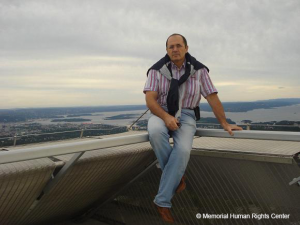
Oyub Titiev
We, members of the Civic Solidarity Platform (CSP), are deeply concerned at reports of the arrest of Oyub Titiev, head of Human Rights Center Memorial’s Grozny office in Chechnya on highly dubious narcotics charges. We call for his immediate and unconditional release and dropping of all charges.
Titiev is highly respected in the international human rights community, as well as in the North Caucasus, where he is part of a small group of brave human rights defenders still working to uncover and document grave ongoing human rights violations. Titiev has led Memorial’s work in Chechnya since the horrific murder of his colleague Natalia Estemirova in 2009. In recent years, he received numerous threats aimed at making him quit human rights work. Now, his life and safety are in jeopardy.
According to reports, Oyub Titiev was brought to the Kurchaloi district police department shortly after his car was stopped and searched near the Khymuk bridge around 10:30 am on Tuesday 9 January. Titiev’s lawyer has been informed that he is being charged with the illegal possession of drugs, reportedly a large amount (180 grams) of marijuana.
Similar trumped-up charges have previously led to several years’ imprisonment for activists and independent journalists in Chechnya. Framing people for drug crimes has become an increasingly frequent tactic used by Chechnya’s authorities to punish and discredit their critics in the eyes of Chechen society.
The Civic Solidarity Platform is a network of more than 90 human rights organizations working across the OSCE region. We consider the suggestion that a highly experienced human rights defender such as 60 year-old Oyub Titiev would travel around Chechnya with any amount of drugs in his car to be absurd, and to be evidence only of the tactics employed by Chechen authorities against principled and hard-working human rights defenders. We believe Chechen authorities are seeking to frame Titiev and close down the extremely important work of Human Rights Center Memorial in the region by means of threats and harassment.
Russia is under an obligation to respect and enable the work of human rights defenders. An important resolution in the UN General Assembly – adopted by consensus on 24 December 2017 – “Calls upon States to take concrete steps to prevent and put an end to arbitrary arrest and detention, including of human rights defenders, and in this regard strongly urges the release of persons detained or imprisoned, in violation of the obligations and commitments of States under international human rights law, for exercising their human rights and fundamental freedoms, such as the rights to freedom of expression, peaceful assembly and association, including in relation to cooperation with the United Nations or other international mechanisms in the area of human rights”.
The undersigned members of the Civic Solidarity Platform call on Chechen authorities as well as central Russian authorities to immediately release Oyub Titiev and stop his persecution as we believe that he is being punished solely in retaliation for his legitimate and peaceful human rights work. Furthermore, we call on authorities to ensure the safety of Memorial staff in Chechnya. Furthermore, we call on authorities not to hinder but to assist brave individuals such as Titiev in their work to uncover grave human rights violations in the North Caucasus region.
We call on international organizations and foreign governments to follow Titiev’s case closely and to bring our concerns to the attention of the authorities in the Russian Federation. Russia must abide by its international human rights obligations and OSCE commitments.
Signed:
- Advisory Centre on contemporary international practices and their implementation in law ”Human Constanta” (Belarus)
- Albanian Helsinki Committee (Albania)
- Article 19 (United Kingdom)
- Association UMPDL (Ukraine)
- Barys Zvozskau Belarusian Human Rights House (Lithuania)
- Belarusian Helsinki Committee (Belarus)
- Bir Duino (Kyrgyzstan)
- Bulgarian Helsinki Committee (Bulgaria)
- Center for Civil Liberties (Ukraine)
- Center for Participation and Development (Georgia)
- Center for the Development of Democracy and Human Rights (Russia)
- Centre de la Protection Internationale (France)
- Citizens’ Watch (Russia)
- Committee Against Torture (Russia)
- Crude Accountability (USA)
- Freedom Files (Poland/Russia)
- Georgian Centre for Psychosocial and Medical Rehabilitation of Torture Victims-GCRT (Georgia)
- German-Russian Exchange (Germany)
- Helsinki Association Armenia (Armenia)
- Helsinki Citizens’ Assembly-Vanadzor (Armenia)
- Helsinki Committee for Human Rights in Serbia (Serbia)
- Helsinki Committee of Armenia (Armenia)
- Helsinki Foundation for Human Rights (Poland)
- Human Rights Center of Azerbaijan (Azerbaijan)
- Human Rights Center “Viasna” (Belarus)
- Human Rights Club (Azerbaijan)
- Human Rights Matter (Germany)
- Human Rights Monitoring Institute (Lithuania)
- IDP Women Association Consent (Georgia)
- Index on Censorship (United Kingdom)
- Institute for Reporters’ Freedom and Safety (Azerbaijan)
- International Partnership for Human Rights (Belgium)
- International Protection Center (Russia)
- Kazakhstan International Bureau for Human Rights and Rule of Law (Kazakhstan)
- Kharkiv Regional Foundation Public Alternative (Ukraine)
- Legal Transformation Center (Belarus)
- Macedonian Helsinki Committee (Macedonia)
- Moscow Helsinki Group (Russia)
- Netherlands Helsinki Committee (Netherlands)
- Norwegian Helsinki Committee (Norway)
- Notabene (Tajikistan)
- OMCT – World Organisation Against Torture (Switzerland)
- Office of Civil Freedoms (Tajikistan)
- Promo LEX Association (Moldova)
- Protection of Rights Without Borders (Armenia)
- Public Association Dignity (Kazakhstan)
- Public Verdict (Russia)
- Regional Center for Strategic Studies (Azerbaijan/Georgia)
- Solidarus (Germany)
- Truth Hounds (Ukraine)
- Women of the Don (Russia)
24 Nov 2017 | Campaigns -- Featured, Europe and Central Asia, Russia
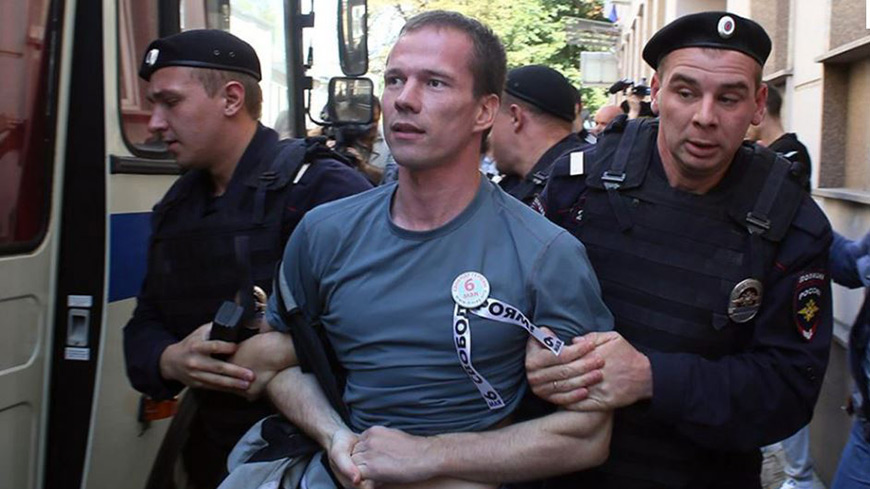
Ildar Dadin
“I can refuse to be silent. And you, friends, can refuse to be silent too. You can refuse to let these people silence me. Together, we can refuse to look away.” – Ildar Dadin, Freedom of Expression Award winner 2018
Silence is the oppressor’s friend. Jailing those who speak out against corruption and injustice – like this year’s Freedom of Expression Awards Fellow Ildar Dadin – is the favoured tool of those who seek to crush dissent. We cannot let the bullies win.
With your help, each year we are able to support writers, journalists, activists and artists at the free speech front line – wherever they are in the world – through Index Fellowships. These remarkable individuals risk their freedom, their families and even their lives to speak out against injustice, censorship and threats to free expression.
I am writing now to ask you to support the Index Fellows. Your donation provides the support and recognition these outstanding individuals need to ensure their voices are heard and their work can continue despite the enormous restrictions under which they are forced to live and work.
Your support will help award winners like Dadin, who was released from a Russian jail earlier this year and has resumed his protests against the government’s human rights abuses. Last month he was detained in St Petersburg while trying to film a woman being assaulted by police. “The situation in this country now is really bad,” Dadin says. “There’s a new kind of police force which can attack and humiliate people, which is very serious”.
Index has worked closely with Dadin to help him deal with the effects of experiencing torture whilst in prison until earlier this year and supported him to rebuild his public profile. In his words: “you gave me opportunities to use help, a psychologist, and you offered me resources and you give me this amazing opportunity to go forward… I thank you very much for this. I appreciate it.”
I hope you will consider showing your support for free speech and the Index Fellows. A gift of £500 would support professional psychological assistance for a fellow; a gift of £100 helps them travel to speak at more public events. A gift of £50 helps us to be available for them around the clock. You can make your donation online now.
Please give what you can in the fight against censorship in 2018. Make your voice heard so that others can do the same.
Thank you for your support.
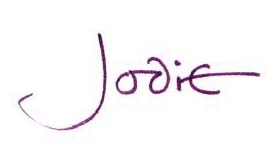
Jodie Ginsberg, CEO
P.S. The 2018 Index on Censorship awards will be held in April. To find out more about the awards fellowship including previous winners, please visit: https://www.indexoncensorship.org/fellowship
Index on Censorship is an international charity that promotes and defends the right to free expression. We publish the work of censored writers, journalists and artists, and monitor, and campaign against, censorship worldwide.
31 Oct 2017 | Magazine, News and features, Volume 46.03 Autumn 2017
[vc_row][vc_column][vc_custom_heading text=”From broadcasting uprisings to employing Russian spies, Radio Free Europe brings news to poorly served regions. In the autumn 2017 issue of Index on Censorship magazine, Sally Gimson looks at the station’s history and asks if it is still needed today”][/vc_column][/vc_row][vc_row][vc_column][vc_column_text]
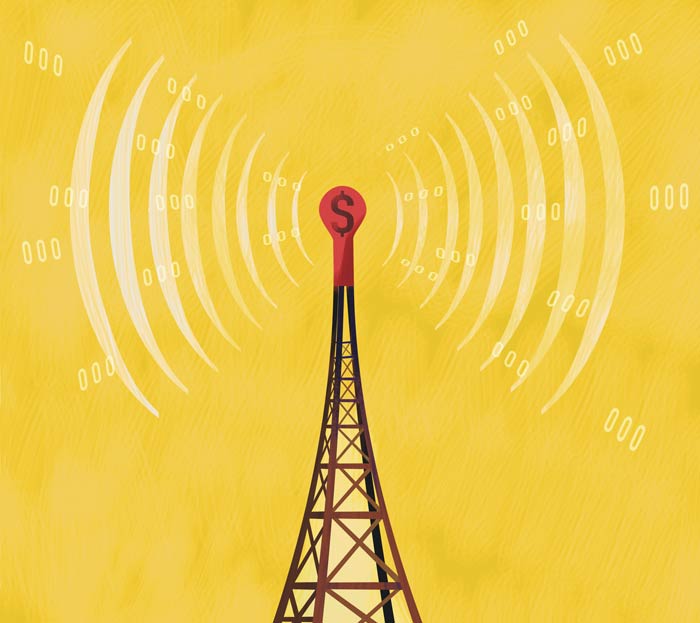
Gregory Baldwin / Ikon
In Georgia, the future of Radio Free Europe, and sister station Radio Liberty, is looking precarious. This summer the Georgian government’s central broadcaster shut down two of RFE/RL’s most popular political programmes. The broadcaster said it was part of a wider restructure, but civil society organisations condemned the move and suggested the station wanted to eliminate critical viewpoints. The move and the subsequent outcry highlight the role RFE continues to play, namely to often act as a platform for free expression in parts of Europe where these values are strained.
Radio Free Europe and Russian station Radio Liberty, which it merged with, have been broadcasting to eastern Europe and Russia since 1950. While its remit originally was to fight communism, it now states its function as serving the cause of democracy more generally.
Today in Chechnya, for example, RFE is the only station where you will hear reports from journalists and stringers in the Chechen language about the influence of Isis and the persecution of gay people. It is the only Western international station operating in Moldova, even if it broadcasts for only a few hours a day. In Armenia, its TV provides a counterbalance to government-controlled media, as well as broadcasting to the wider diaspora. And in Kazakhstan, it provided special coverage of the early parliamentary election last year with six hours of live-streamed video on its website.
John O’Sullivan, executive editor of RFE between 2008 and 2012, argues passionately that “the radios”, as he calls the stations, have key roles to play in making sure people have a strong source of news and hear different viewpoints, and in holding governments to account with local journalists reporting on the ground.
“At the moment, there is a moral war between all these countries and the argument that commercial stations can do this job is fine, except they can’t do the job of the radios,” he told Index. “CNN is … never going to have a lot of correspondents in Armenia and never going to have correspondents in Chechnya. It’s going to be doing a story once every three months. Those audiences need it every day.”
Originally set up as an intelligence services-led project, RFE aimed to counter what the US government saw as superior propaganda coming out of the Soviet Union. Although primarily funded by the CIA, it was promoted to the US public as a project for truth and freedom to which they should contribute. Future US president Ronald Reagan, a young actor in the early 1950s, fronted up the public service advertisement, encouraging donations with the exhortation: “This station daily pierces the Iron Curtain with the truth, answering the lies of the Kremlin and bringing a message of hope to millions trapped behind the Iron Curtain.”
Victoria Phillips, who runs the RFE research project at Columbia University, told Index: “These men [who founded RFE] … really did believe in the power of truth and freedom of ideas, and when I read about some of those people, you don’t like the fact that they tried to invade places, and they had coups, but in the end the core was a belief in the power of ideas, and if ideas are allowed to vent then good will take place…”[/vc_column_text][vc_row_inner][vc_column_inner width=”1/3″][vc_icon icon_fontawesome=”fa fa-quote-left” color=”custom” align=”right” custom_color=”#dd3333″][/vc_column_inner][vc_column_inner width=”2/3″][vc_custom_heading text=”RFE was accused of encouraging insurgents to believe the USA would intervene on their behalf militarily” google_fonts=”font_family:Libre%20Baskerville%3Aregular%2Citalic%2C700|font_style:400%20italic%3A400%3Aitalic”][/vc_column_inner][/vc_row_inner][vc_column_text]In the beginning, the broadcasts used émigrés and dissidents for their programmes. They spoke from the headquarters in Munich to their countrymen and women in their own languages and were broadcast on short wave radios, which were widely accessible. It was an alternative source of news to the official Soviet broadcasters.
During the Cold War RFE was also a hotbed of spies, double agents and political resistance. The Bulgarian novelist and playwright Georgi Markov was assassinated in London with the tip of a poisoned umbrella in part because of his RFE In Absentia programme. Markov had dined with the communist elite and knew all about their lives. He revelled in satirising them and the absurdity of the system for his audience back home. According to the communist government he “insolently mocked” the regime and “encouraged dissidence”.
When O’Sullivan was executive director RFE/RL, he remembers the Iranian secret service taking pictures of the Iranian journalists coming into the offices, then in Prague, in an effort to intimidate them. “We know in a general way that some of the countries had agents embedded in the service which broadcast to them. We didn’t know who they were obviously. And in one particular case, in the Russian service, [there was] a man who had defected [back to Russia]. He had been in RFE during the Cold War and he defected and went to work for Radio Moscow and he subsequently wrote a tell-all memoir in which he had to confess that journalistic standards in Radio Moscow were well below the standards in Radio Free Europe, or in his case Radio Liberty.”
Later, RFE played an instrumental role in the fall of the USSR. As writer Irena Maryniak explained in an article for Index in 2010: “Western radios became a forum for dissenting views and personalities: people like Václav Havel (later president of the Czech Republic); the Russian physicist and civil rights activist Andrei Sakharov; the Polish historian Adam Michnik; or indeed maverick party members like Boris Yeltsin, who broadcast on Radio Liberty when he was out of favour with colleagues at home.”
Today, many of the 23 countries where RFE works are areas where the USA still wants foreign policy influence. It broadcasts across a huge range of media, not just radio. And the languages and countries the station covers, from the Caucasus and the Balkans to Afghanistan via Iran and Pakistan, read like a map of East-West tension.
Indeed, the congressionally funded Broadcasting Board of Governors, which has openly funded RFE since the 1970s and pours $117 million of taxpayers’ money into the service, is robust about its “soft power” intentions. Its 2016 budget report contains headings such as Countering a Revanchist Russia. And the report explicitly links broadcasting with foreign policy priorities.
So can we trust its journalism? The answer from O’Sullivan is yes. It’s not constrained to put the US view in the same way as Voice of America, and it actively seeks to encourage free speech and news coverage in countries where this is underdeveloped or difficult. Indeed, many reporters risk their lives to report for RFE, such as Khadija Ismayilova, who was imprisoned in Azerbaijan for exposing the president’s link to corruption. She was awarded the Unesco/Guillermo Cano World Press Freedom Prize in 2016 for her fearless work for the station. The station also won two prizes at the New York Festivals’ International Awards this spring, including one for the Kyrgyz service’s short video feature A Snowy Trek on Horseback to Teach School.[/vc_column_text][/vc_column][/vc_row][vc_row][vc_column width=”1/3″][vc_icon icon_fontawesome=”fa fa-quote-left” color=”custom” align=”right” custom_color=”#dd3333″][/vc_column][vc_column width=”2/3″][vc_custom_heading text=”The people who were broadcasting suddenly realised that there were huge ramifications if you promised, or seemed to promise, something and it didn’t come true.” google_fonts=”font_family:Libre%20Baskerville%3Aregular%2Citalic%2C700|font_style:400%20italic%3A400%3Aitalic”][/vc_column][/vc_row][vc_row][vc_column][vc_column_text]There have been darker moments at RFE, the most famous being its reporting on the Hungarian uprising of 1956 when at least 2,500 people were killed and many more were forced into exile, imprisoned and deported. RFE was accused of encouraging insurgents to believe the USA would intervene on their behalf militarily and therefore making people risk their lives unnecessarily. A couple of its programmes offered tactical military advice, and one commentary told people not to give up their weapons.
George Urban, the director of the Radio Free Europe division at the time, admitted they got it wrong. He said: “The radio was young and inexperienced. After barely five years of broadcasting, its management was still testing the instruments and boundary lines of the Cold War and was simply not up to the task of responding with clarity or finesse to its first great challenge. Hungary, its baptism of fire, cost it dear.”
As Phillips said: “The people who were broadcasting suddenly realised that there were huge ramifications if you promised, or seemed to promise, something and it didn’t come true. That people were going to die; your friends were going to die.”
Despite these controversies, RFE has survived, in part because the US Congress has continued to invest in the European operation, if on a smaller scale than during the Cold War. But O’Sullivan believes “the radios” should be given a lot more money and are needed more than ever to compete with stations like Russia Today (with a budget of about $300 million in 2016) and Al Jazeera.
“I think that people will accept there is an argument for good journalism which gives the news about their own country to people whose country would like to deprive them of it, and good journalism which sets standards to which we hope the journalists in transitioning countries will aspire and gradually achieve,” he said.
This article was updated on 1 November 2017 to include additional information.[/vc_column_text][vc_row_inner][vc_column_inner][vc_column_text]This article first appeared in the Autumn 2017 issue of Index on Censorship magazine, an award-winning, quarterly magazine dedicated to fighting for free expression and against censorship across the globe since 1972. You can subscribe here or via Exact Editions here. [/vc_column_text][/vc_column_inner][/vc_row_inner][/vc_column][/vc_row][vc_row][vc_column][vc_custom_heading text=”From the Archives”][vc_row_inner][vc_column_inner width=”1/3″][vc_single_image image=”89160″ img_size=”213×289″ alignment=”center” onclick=”custom_link” link=”http://journals.sagepub.com/doi/pdf/10.1177/0306422011399691″][vc_custom_heading text=”Surviving Lukashenko ” font_container=”tag:p|font_size:24|text_align:left” link=”url:http%3A%2F%2Fjournals.sagepub.com%2Fdoi%2Fpdf%2F10.1177%2F0306422011399691|||”][vc_column_text]March 2011
James Kirchick looks at the climate for alternative media in the aftermath of the 2010 Belarus elections.[/vc_column_text][/vc_column_inner][vc_column_inner width=”1/3″][vc_single_image image=”94267″ img_size=”213×289″ alignment=”center” onclick=”custom_link” link=”http://journals.sagepub.com/doi/pdf/10.1080/03064228208533431″][vc_custom_heading text=”Extolling the communist party” font_container=”tag:p|font_size:24|text_align:left” link=”url:http%3A%2F%2Fjournals.sagepub.com%2Fdoi%2Fpdf%2F10.1080%2F03064228208533431|||”][vc_column_text]October 1982
Janis Sapiets questions whether Soviet broadcasting is partaking in censorship or responsibility to the party. [/vc_column_text][/vc_column_inner][vc_column_inner width=”1/3″][vc_single_image image=”94034″ img_size=”213×289″ alignment=”center” onclick=”custom_link” link=”http://journals.sagepub.com/doi/pdf/10.1080/03064228308533503″][vc_custom_heading text=”Censorship in retreat” font_container=”tag:p|font_size:24|text_align:left” link=”url:http%3A%2F%2Fjournals.sagepub.com%2Fdoi%2Fpdf%2F10.1080%2F03064228308533503|||”][vc_column_text]April 1983
Hungary’s best-known novelist writes on the craving in Eastern Europe for communication and exchanges of ideas.[/vc_column_text][/vc_column_inner][/vc_row_inner][vc_separator][/vc_column][/vc_row][vc_row][vc_column width=”1/3″][vc_custom_heading text=”Free to air” font_container=”tag:p|font_size:24|text_align:left” link=”url:%20https%3A%2F%2Fwww.indexoncensorship.org%2F2017%2F09%2Ffree-to-air%2F|||”][vc_column_text]Through a range of in-depth reporting, interviews and illustrations, the autumn 2017 issue of Index on Censorship magazine explores how radio has been reborn and is innovating ways to deliver news in war zones, developing countries and online
With: Ismail Einashe, Peter Bazalgette, Wana Udobang[/vc_column_text][/vc_column][vc_column width=”1/3″][vc_single_image image=”95458″ img_size=”medium” alignment=”center” onclick=”custom_link” link=”https://www.indexoncensorship.org/2017/09/free-to-air/”][/vc_column][vc_column width=”1/3″][vc_custom_heading text=”Subscribe” font_container=”tag:p|font_size:24|text_align:left” link=”url:https%3A%2F%2Fwww.indexoncensorship.org%2Fsubscribe%2F|||”][vc_column_text]In print, online. In your mailbox, on your iPad.
Subscription options from £18 or just £1.49 in the App Store for a digital issue.
Every subscriber helps support Index on Censorship’s projects around the world.
 SUBSCRIBE NOW[/vc_column_text][/vc_column][/vc_row]
SUBSCRIBE NOW[/vc_column_text][/vc_column][/vc_row]





